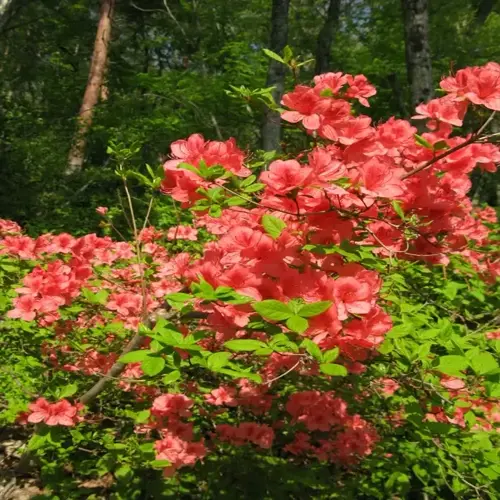How do I care for a salmonberry plant?

Written by
Tina Carter
Reviewed by
Prof. Martin Thorne, Ph.D.To take care of salmonberry plants (Rubus spectabilis), you must understand what habitat they are suited for. These native berries are typically located along the edges of Pacific Northwest streams where the soil is moist and acidic. They tend to grow in partial shade, similar to where they are found along the forest edges. I have mine planted under dappled shade in tree canopies, which provides very productive harvests each year.
Salmonberry plants should be planted in areas that receive morning sun only. If afternoon shade is provided, the likelihood of leaf scorch decreases. Space plants at least three feet apart for good air circulation. When digging holes, make them twice the width of the root ball. To help maintain acidity in the planting soil, consider mixing in peat moss. Water plants in the well once they are planted to settle the roots.
Soil Preparation
- Test pH aiming for 5.5-6.5 range
- Amend with peat moss or pine needles
- Ensure excellent drainage to prevent root rot
Water Management
- Water deeply twice weekly in summer
- Maintain consistent soil moisture
- Use drip irrigation to avoid wetting leaves
Pruning Technique
- Cut fruited canes to ground after harvest
- Thin new canes keeping strongest shoots
- Disinfect tools between plants
Winter Protection
- Apply 4-inch mulch after first frost
- Wrap young plants in burlap below 20°F
- Remove winter protection gradually in spring
Salmonberries entice desirable pollinators by flowering so early. Birds like to feast on the fruits as well, so covering them with netting when the berries are ripe is recommended. I plant mine next to other blueberries for assistance with cross-pollination. Healthy plants can produce for a decade or longer with proper care. You'll be rewarded for your labor with delicious, uniquely flavored berries.
Address problems like yellowing leaves on plants promptly. This usually means a pH or drainage issue. Or test the soil and treat accordingly. Fungal spots indicate airflow issues. Proper spacing of plants, around 2 feet apart, and annual pruning can help alleviate this issue. The salmonberries pictured above overcame this with the adjusted care.
Read the full article: Ultimate Berry Bush Care Guide for Home Gardeners

